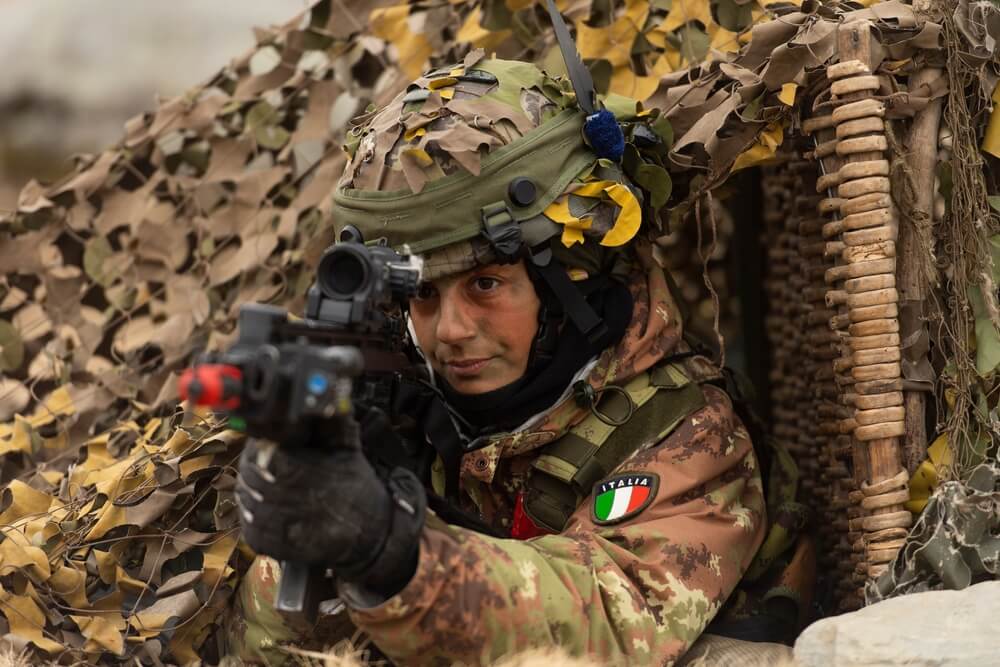Up to 100 people shot dead at an international airport complex by Al-Qaeda militants. Up to 600 civilians machine-gunned in an attack lasting just a few hours. A man in a military uniform carving up the stomach of a corpse and threatening to eat the liver as his companions laugh. Can you name where and when these atrocities took place in 2024?
The first took place in September in the Malian capital Bamako, the second in the town of Barsalgho in Burkina Faso also in September, and the third was depicted in a video from Mali circulating on X in July.
Perhaps the world is more inured to terrorism or maybe it is because these attacks are happening in the Sahel that they attract a fraction of the attention they would garner should they happen in the west or the Middle East?
Whatever the reason, 2025 is likely to prove just as, if not more, deadly for civilians in the Sahel after this year looks set to have surpassed 2023’s level of violence.
In Mali, Burkina Faso and Niger, states are fighting an insurgency fought by jihadis linked to Al Qaeda and Islamic State using guns, drones, improvised explosive devices, rockets and mortar shells.
There was a monthly average of 4.4 attacks in 2024 compared with 3.9 the year before, according to the non-profit Armed Conflict Location & Event Data, which says regional instability is also encompassing Benin, Nigeria and Togo.
Coup belt
Little has been done by western powers to address the so-called “coup belt” stretching from the Red Sea to the Atlantic after military strongmen took over countries starting in Mali and then in Guinea, Sudan, Burkina Faso, Niger, Gabon and Chad.
It remains to be seen if Moscow will retrench from the Sahel as it has in Syria to concentrate on the war in Ukraine. It, along with China and Turkey, had expanded its influence in the region as well as providing affordable drones and infrastructure investment in the impoverished region.
Russian mercenaries moved in at the expense of France, which withdrew its troops following the coups in Mali, Burkina Faso and Niger. On 28 November, Chad turned abruptly on its former colonial power and severed military ties with France, which has started withdrawing about 1,000 troops. On the same day, Senegal urged the removal of French military bases.
European powers are urged to pay more attention. “The region is part of Europe’s neighbourhood; rival outside powers have no qualms about mass human-rights abuses; and further disengagement will only open up new inroads for malign actors,” said the European Council on Foreign Relations (ECFR) in a recent policy brief.
Burkina Faso has lost up to 40% of its territory to jihadi groups
In Mali, civilians not only have to contend with the jihadi insurgency that has been waged for more than a decade but also the Malian armed forces that seized power in 2021.
They and the Russian mercenary Wagner Group have committed rights abuses since the withdrawal of a UN peacekeeping mission late last year, says a recent Human Rights Watch report.
Burkina Faso has lost up to 40% of its territory to jihadi groups despite promises by the country’s military ruler Captain Ibrahim Traoré, who seized power in 2022, to improve security. He sacked his prime minister and dissolved the entire government on 7 December. Meanwhile, tens of thousands of people have been killed and 3 million others displaced.
The military junta in Niger is also facing rising criticism for failing to stop the violence, also promised as justification for the 2023 coup. This week it suspended the BBC for three months and accused the broadcaster of spreading fake news after it reported jihadist attacks said to have killed 91 soldiers and nearly 50 civilians in early December.
Western powers fail to act
West Africa’s main political and economic group, the Economic Community of West African States (ECOWAS), has appeared powerless in the face of the crisis. In February, it lifted economic and travel sanctions against Mali, Burkina Faso and Niger but the three countries still vow to quit the bloc.
On 15 December, ECOWAS granted a six-month grace period for the withdrawal of the three countries that was scheduled for 29 January as part of efforts to dissuade them from leaving.
 Italy is the only EU country to have kept special forces in Niger to train local forces
Italy is the only EU country to have kept special forces in Niger to train local forces
The bloc allows free trade and movement for 400 million people in the region. Meanwhile, the three countries have formed their own group called the Alliance of Sahel States and said their decision to leave ECOWAS is “irreversible”.
Amid the grinding instability, there are calls for action and even for support from NATO if only out of self-interest and realpolitik to control the flow of refugees and irregular migrants.
Italy is the only EU country to have kept special forces in Niger to train local forces while Spain views co-operation with the Malian junta as a strategic priority, says the ECFR.
NATO could respond to members’ interests by supporting humanitarian efforts and “monitoring activities aiming at intercepting potential security spillovers towards North Africa and the Mediterranean,” argues the International Centre for Counter-Terrorism, a Netherlands-based think tank.
What is clear is that while western powers fail to act, the situation is worsening and is compounded by climate change that is likely to push more people to seek better lives elsewhere. But the global crises erupting in a multi-polar world so far appear too much to handle by overwhelmed Western actors.